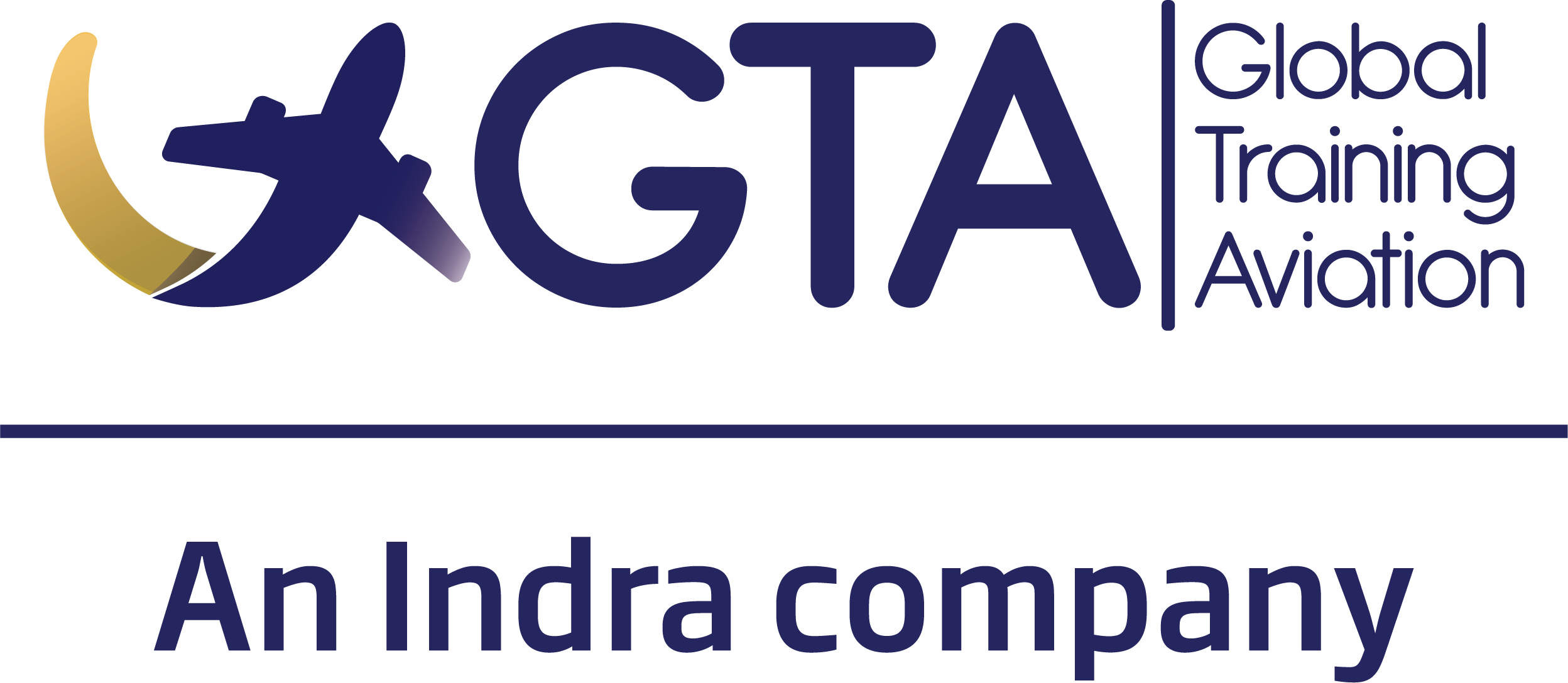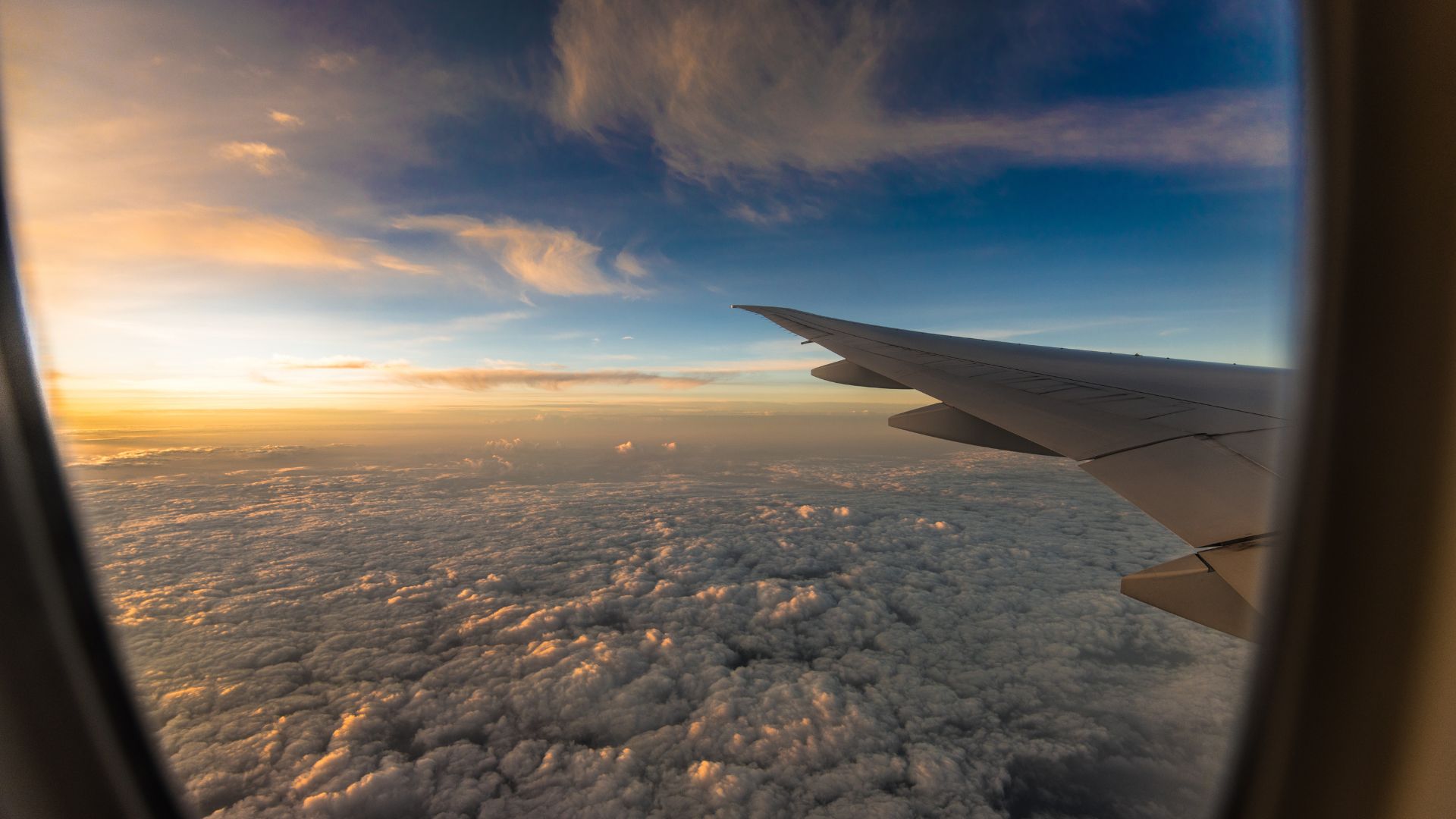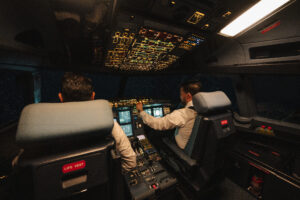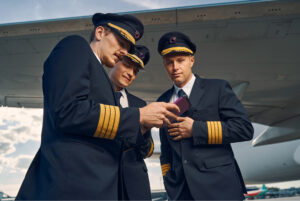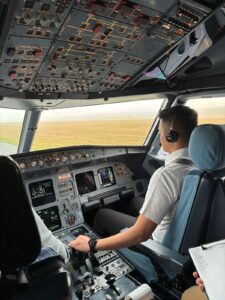Aviation isn’t just about mastering technical skills or flying advanced aircraft like the Airbus A320 or Boeing 737. Behind every takeoff and landing, there’s a complex mental process that pilots, cabin crew, and aviation instructors must navigate. The psychology of flight plays a crucial role in how individuals handle the stresses of aviation, and it’s essential for anyone involved in the aviation industry to understand its impact on performance. In this article, we explore the psychological aspects of flight and how they affect the aviation environment, from pilots in the cockpit to cabin crew in the cabin.
The Impact of Flight Anxiety on Pilots
One of the most significant psychological challenges in aviation is flight anxiety, which affects not only passengers but also pilots. While many pilots undergo rigorous pilot training, including training courses on stress management and mental resilience, some may still experience anxiety.
For pilots flying complex aircraft such as the A320 or B737, the mental demands of managing critical flight information, making quick decisions, and ensuring passenger safety can be overwhelming. Understanding the psychological challenges and how to manage them is essential for reducing stress and enhancing performance in the cockpit.
- Coping with Stress: Pilots are trained to manage high-stress situations, but this training often involves mental conditioning and mindfulness techniques to keep calm under pressure.
- Flight Anxiety Management: Through specialized training, pilots learn how to handle feelings of anxiety, whether due to turbulence, technical issues, or long hours of flying.
The Role of Cabin Crew Psychology in Passenger Safety
Just as pilots must maintain mental resilience, cabin crew members, including flight attendants, must also deal with psychological challenges. Cabin crew training involves more than just emergency procedures; it also focuses on emotional intelligence, stress management, and conflict resolution.
Cabin crew often encounter stressful situations during flights, such as dealing with unruly passengers, managing emergencies, or ensuring passenger safety during turbulent conditions. Understanding human psychology helps them stay calm, handle conflicts diplomatically, and maintain a safe and comfortable environment for passengers.
- Emotional Intelligence: A crucial skill for cabin crew is emotional intelligence, which helps them read and respond to passengers’ needs and emotional states.
- Dealing with Stressful Situations: Cabin crew are trained to stay calm in high-pressure environments, which requires mental preparation and psychological resilience.
Mental Health and Wellbeing in Aviation
Mental health is a critical aspect of aviation psychology. Pilots, cabin crew, and even aviation instructors must manage their mental wellbeing to perform at their best. Airlines have recognized the importance of mental health in aviation and have introduced programs to support their employees’ mental and emotional wellbeing.
- Employee Assistance Programs: Many airlines provide resources such as counseling, therapy, and support groups to help staff manage the mental demands of their jobs.
- Mindfulness and Mental Resilience Training: Incorporating mindfulness and resilience techniques into training courses helps aviation professionals handle stressful situations more effectively.
Cognitive Load and the Complexity of Flight Operations
A key concept in the psychology of flight is cognitive load, which refers to the mental effort required to perform complex tasks. Pilots, especially those flying aircraft like the Boeing 737 or the ATR600, are constantly processing vast amounts of information, from navigation data to weather reports and fuel consumption statistics.
Cognitive overload can lead to errors, so aviation training courses often focus on strategies to manage cognitive load, such as prioritizing tasks, using automation systems, and working as a team. Understanding how the brain processes information and how to optimize mental resources is essential for ensuring smooth flight operations.
- Cockpit Resource Management (CRM): CRM training teaches pilots how to effectively communicate and manage resources to reduce cognitive load and enhance safety.
- Automation and Delegation: Pilots are trained to use aircraft systems efficiently and delegate tasks to co-pilots or automation when possible, helping to manage mental resources.
The Psychology Behind Flight Training
Flight training isn’t just about learning to fly an aircraft like the Airbus A320 or ATR500; it also involves understanding the psychological elements that impact performance. Instructors play a crucial role in helping students manage the psychological aspects of flight training.
- Building Confidence: Instructors must help trainees build confidence in their abilities, which can be challenging, especially during difficult or complex training scenarios.
- Managing Fear of Failure: A key part of flight training is overcoming fear and failure. Instructors encourage pilots to view mistakes as learning opportunities rather than setbacks.
- Mental Preparation for Real-World Flying: Flight training incorporates mental preparation to help pilots manage the psychological stresses of real-world flying, from handling difficult weather conditions to navigating busy airspace.
The Psychological Demands of Long-Haul Flights
Long-haul flights, whether on an Airbus A320 or Boeing 737, require pilots and cabin crew to manage not just their physical fatigue but also their mental endurance. Psychological preparation is crucial for handling the extended hours in the cockpit and cabin.
- Circadian Rhythms and Fatigue: Pilots and cabin crew must manage their circadian rhythms to stay alert during long-haul flights, often crossing multiple time zones.
- Team Coordination: Effective communication and teamwork are critical to ensuring smooth operations and reducing mental fatigue during long flights.
The Importance of Psychology in Aviation
The psychology of flight is an often-overlooked aspect of aviation that plays a significant role in the performance of pilots, cabin crew, and aviation instructors. From managing stress and anxiety to optimizing cognitive load and mental resilience, understanding the psychological demands of aviation is crucial for ensuring safety, efficiency, and wellbeing in the air.
As aviation technology continues to advance with aircraft like the Boeing 737, Airbus A320, and ATR600, the psychological demands of flying remain as important as ever. By incorporating psychological principles into flight training, mental health programs, and operational strategies, aviation professionals can enhance their performance, improve safety, and ensure the wellbeing of both crew and passengers.
Understanding the psychology of flight isn’t just about mastering the technical side of aviation; it’s also about ensuring that those involved in the industry can manage the mental challenges that come with it.
